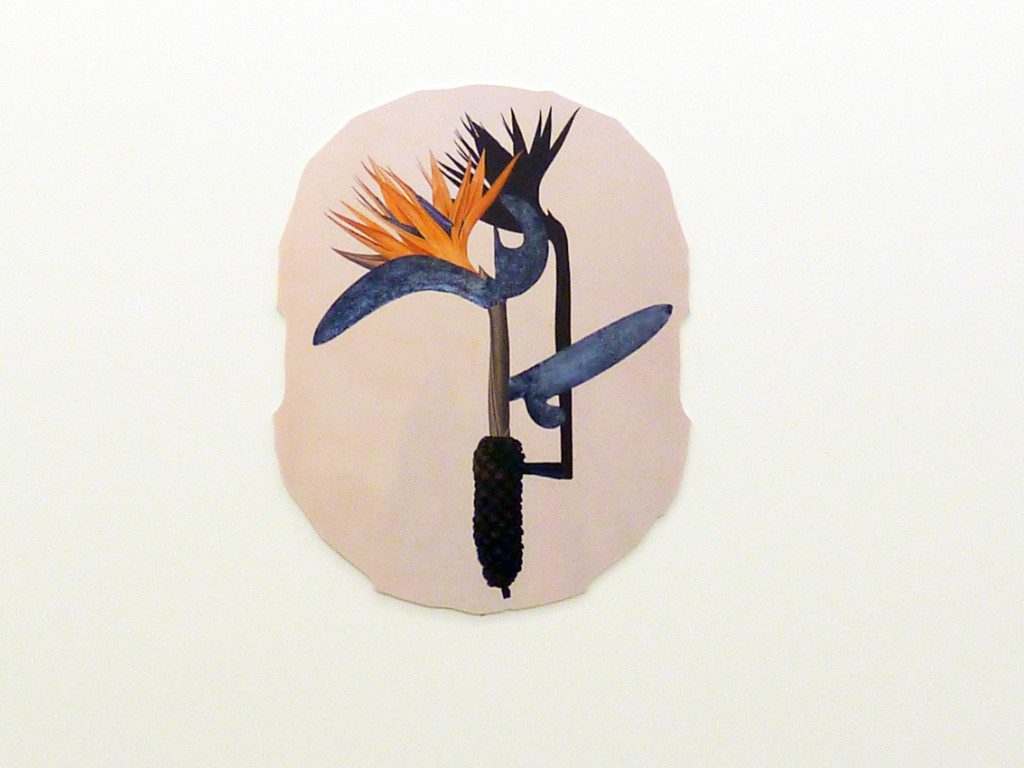Nkanga has been selected by the distinguished jury panel consisting of Chris Dercon, Director of Tate Modern, and Adam D. Weinberg, Alice Pratt Brown Director of Whitney Museum of American Art.

Facing the Opponent Regina Kipinga. Courtesy: Nkanga
The Yanghyun Foundation announced the Nigerian artist Otobong Nkanga as the recipient of the 2015 Yanghyun Prize. Nkanga has been selected by the distinguished jury panel consisting of Chris Dercon, Director of Tate Modern, and Adam D. Weinberg, Alice Pratt Brown Director of Whitney Museum of American Art.
Otobong Nkanga’s activities and performances encompass all kinds of media and motivate photography, drawing, painting, sculpture, installation and video. They weave together concerns about land, natural resources, architecture, the value connected to them and the dynamic status of remembrance. Her trans-categorical artistic practice is defined by her ability to pervade the complex layers of human and natural traces left in material objects and landscapes. Architecture and landscape act as a sounding board for narration and “the performative,” as a human trace that testifies of ways of living and environmental issues. She delves into broad historic contexts as well as present realities by engaging with a wide spectrum of knowledge production: from political theory to philosophy, from sociology to natural sciences. She submerges into archives, examines raw material and discusses with experts on their respective fields. A process of meticulous drafting, planning and preparing follows. Pivotal here is examining, representing and altering ideas of geographies, home and displacement. For Nkanga, the crucial element connecting these concepts is memory: “Memory is not only an autobiographical state, but also an important notion in relation to objects that leave traces.” For her, intangible elements such as smell are as important as objects in the narration of who we are. They are keys to multidimensional perspectives on events, spaces and experiences that constitute past and present.
Otobong Nkanga was born in Kano, Nigeria in 1974. She studied at the Obafemi Awolowo University, Osun State, Nigeria, Ecole Nationale Superieure des Beaux Arts in Paris, and the Rijksakademie van beeldende kunsten, Amsterdam, and completed Advanced Studies in the Performing Arts at the DasArts, Amsterdam, The Netherlands. She has participated in a number of international exhibitions, including Biennale de Lyon (2015), Sao Paulo Biennale (2014), Berlin Biennale (2014) and Sharjah Biennale (2013), and has held solo exhibitions at a number of art institutions, such as Museum Folkwang, Germany; M HKA, Belgium; Stedelijk Museum, The Netherlands; and Kadist Foundation, France.
The jury panel commented in their statement: “In Nkanga’s work, the landscape is a sounding board for ideas, stories and memories, evoking an awareness of our connection with natural resources and its challenging histories. Her installations are imaginative and emotive, but also earthly: they represent our relationship with the world. We are greatly impressed by the intensity, depth and variety of Nkanga’s body of work, as well as its profoundly beautiful and urgently political character. Nkanga is an artist whose work encompasses poetic, subtle yet radical components. Her installations and performances promote self-reflection through storytelling provided sometimes by the artist and, other times, by her audience. Nkanga’s work awakens consciousness in all of us, active or passive participants of environmental devastation and economic exploitation.”
About the Yanghyun Prize
The Yanghyun Prize was established in 2008 as the first international art prize by a Korean institution. Its key aim is to acknowledge and support outstanding mid-career artists by offering a global stage for exhibiting their work, a long-standing wish of the late Mr. Sooho Cho, who was a well-known art lover and philanthropist. The recipient is awarded a cash prize as well as a sponsorship for an exhibition at a world renowned art museum of her or his choice. Past recipients are Cameron Jamie (2008), Isa Genzken (2009), Jewyo Rhii (2010), Akram Zaatari (2011), Abraham Cruzvillegas (2012), Rivane Neuenschwander (2013) and Apitchapong Weerasethakul (2014).
More Editorial